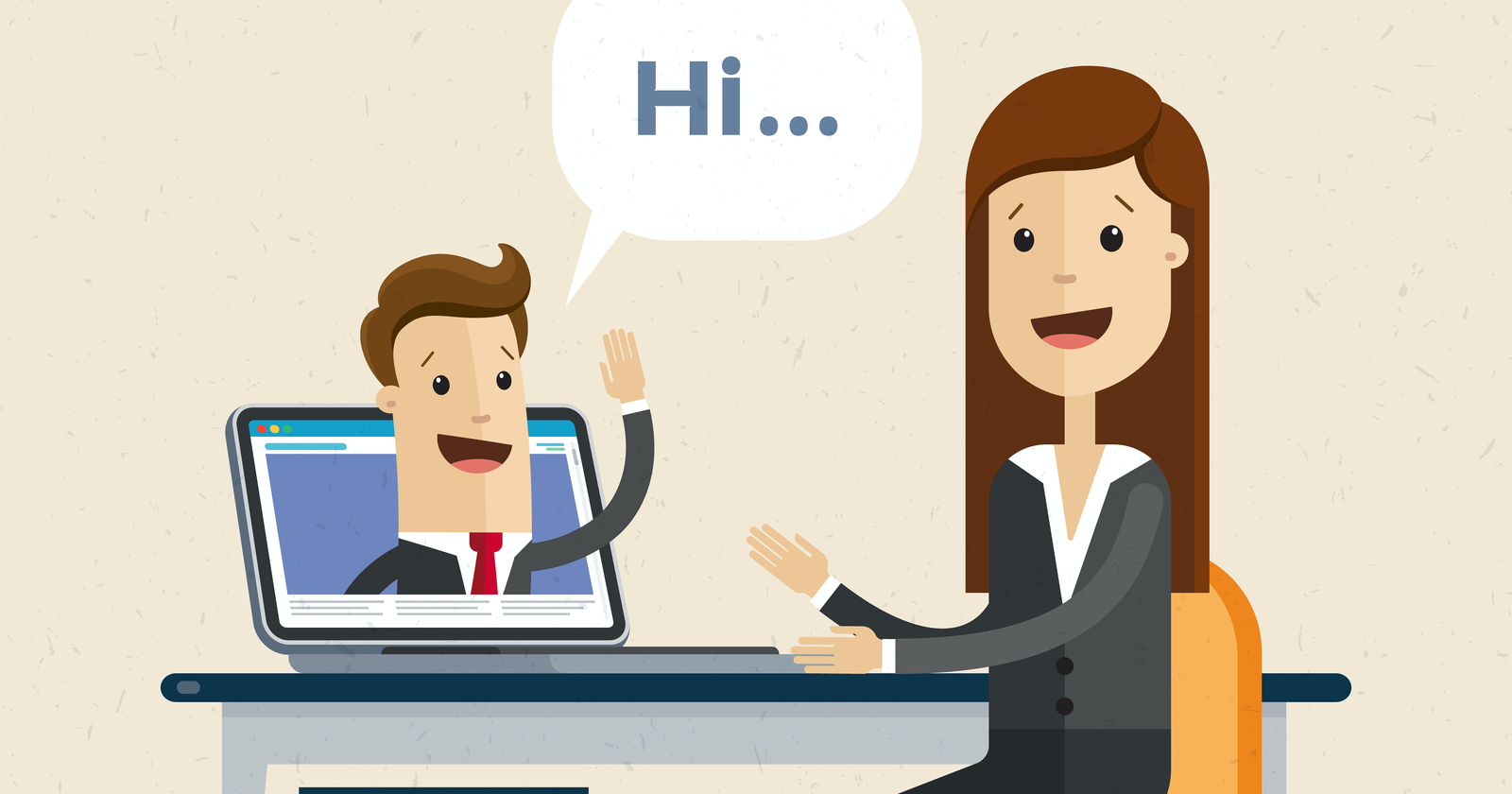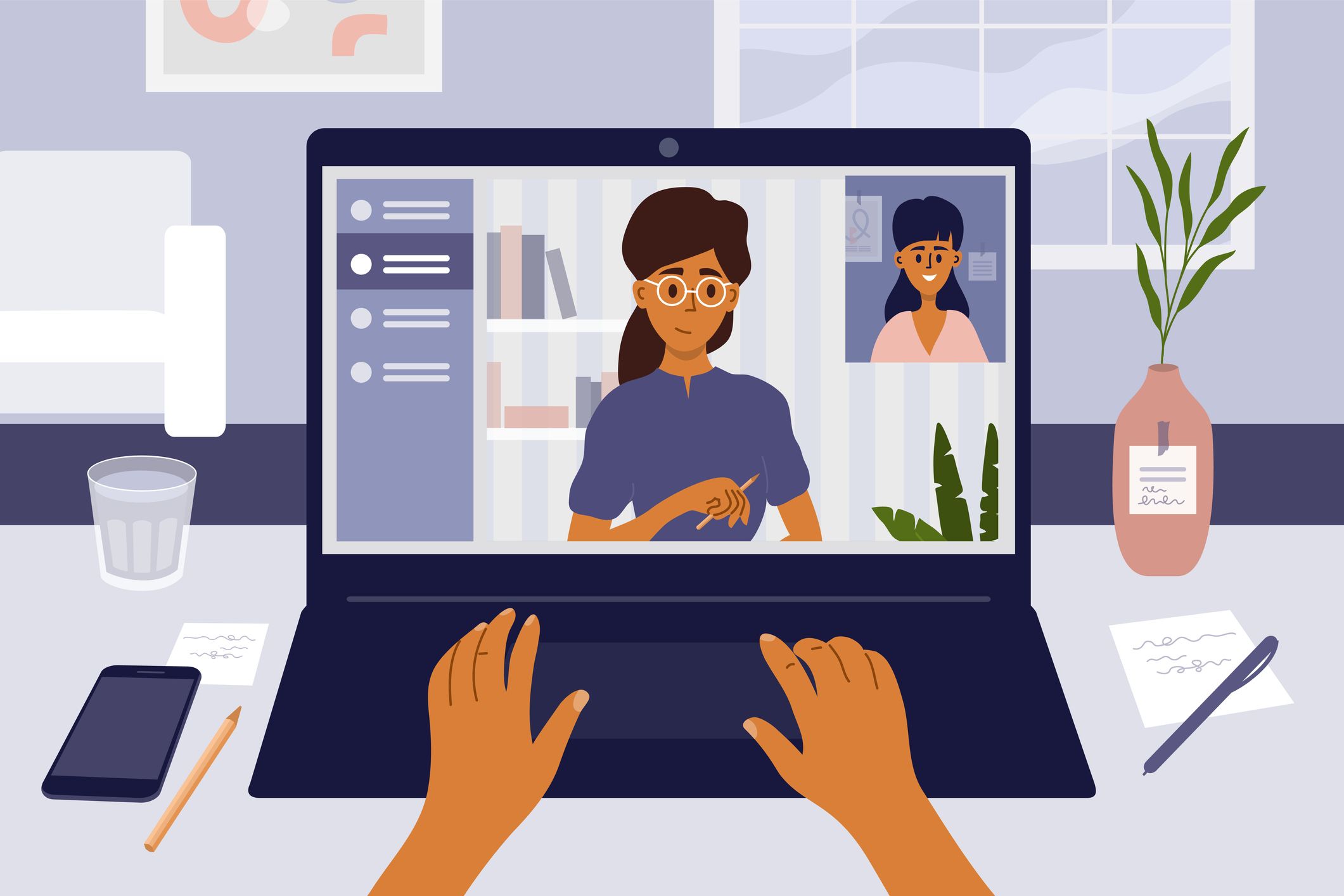You’ve done all your research, you’ve decided how you’ll dress, and you feel ready for the job interview. But there is a question you may not be able to answer: how long does a job interview last? What about the whole selection process?
Don’t worry, in this article, I’ll give you all the details you need to know about the length of a job interview and the selection process.
How long does a job interview last
The duration of a selection interview varies a lot. Typically, recruiters try to gather as much information in a pre-determined time. This means that the recruiter will be led to interviews that all have approximately the same duration, regardless of the person being interviewed.
However, an interview that is too short prevents you from obtaining sufficient details about the candidate, while an interview that is too long risks compromising the recruiter’s working day. For this reason, the average length of a face-to-face job interview is generally 30 to 45 minutes. If it is an interview aimed at hiring an intermediate or senior level candidate, the interview lasts longer, and its time can vary between 45 minutes and an hour and a half.
In normal conditions, therefore, the duration of the interview is first linked to the time it takes for the candidate and recruiter to get to know each other in-depth. Keep in mind that the length of a job interview depends a lot on the type of position you are applying for: the more responsibility, specialization, or seniority required, the more likely it is that the interview will last longer. The length of an interview also depends on the number of questions you ask the recruiter yourself.
Asking questions will allow you to show the recruiter your strong interest in the role. It is also important that you take the time to resolve all your doubts about the company and the position offered. To make a good first impression and not “burn” the time that the recruiter has put at your disposal, make sure you arrive at the job interview about 10-15 minutes before the scheduled time.
Arriving early will help you relax and familiarize yourself with the context. A little tip: also be friendly to the staff who will welcome you to introduce yourself and explain why you are there. Remember that the recruiter often also asks the staff/receptionist who welcomed you about their impression of you.
The risks of a too-short interview
If the job interview is conducted by an inexperienced person, you may find yourself facing a very short interview.
Your interviewer may be as agitated as or more than you and therefore can’t wait to finish, or he may not know what questions to ask except “tell me about her and her experiences” and little other. If a short interview reduces the stress you are under, at the same time it is a danger to you.
As I said, too short an interview prevents the recruiter from obtaining sufficient details about the candidate and will force him to choose based on an absolutely arbitrary evaluation. A selection conducted in this way, therefore, could favor who is more suitable for that “skin” position.
But the truth is that the result of the same selection could be totally overturned if the recruiter had the possibility to talk longer with the candidates and get to know them better. This does not mean that there are no short and effective interviews, or that a short interview is an interview that will inevitably penalize you.
However, remember that an interview aims to collect more in-depth information than those reported in the CV, and also serves to make the recruiter understand what kind of person you are, what attitudes you tend to adopt in various situations of life and work, what are your attitudes.
And to achieve this the recruiter needs time. If you ever find yourself faced with a recruiter who runs out of topics too quickly and doesn’t go into depth, be very careful not to settle down by letting the interview last too short because of him, and make an effort to offer information and ideas.
If he really wants to cut it short, just say things like “very well, I understand” to stop you and move on.
Recapitulating:
- the duration of a job interview usually varies between 30 minutes and an hour and a half
- the duration depends on the specificity of the position you are applying for
- the duration depends on the tests (aptitude, etc.) that the recruiter will want you to perform
- the duration depends on the time the recruiter has available
- defend yourself from too short interviews
Stages of the selection process
Getting a job isn’t always quick and easy. Making an interview and receiving the offer immediately is now a thing of the past.
Today the selection process can be very long and involves several steps: from a quick chat on the phone to an in-person interview, to a second interview and even a third or fourth interview.
Also, during this process, you may be confronted with different people at each step, such as the recruiter, managers, owners, function managers, and other staff members.
There is no standard procedure: handling the recruitment process varies according to employers’ preferences regarding hiring.
I will go through some different steps, usually the most common, that characterize the process of selecting a candidate and I will give you some advice on how to manage each phase to behave most appropriately and get the job you want.

Screening
The screening interview is a type of first job interview that is conducted if the company decides not to engage in open interviews immediately. It is used to quickly build a list of potential candidates, thus increasing the efficiency of the formal interview process, which may affect a smaller number of people.
Although it is the fastest of the interviews (it lasts between 10 and 30 minutes), and also the least formal, it is of great value as it is a clear signal of interest in the candidate by the company it hires.
The screening interview consists of a short question and answer session, generally conducted in a relatively informal way to understand if you have the necessary qualifications to perform the required job and to acquire a general idea about your compatibility with the company culture.
Telephone interview
Many recruiters or employers use a telephone interview to find candidates to hire.
The telephone interviews are used by the recruiter to narrow the circle of candidates who will then be invited to a face to face interview. For jobs carried out remotely, telephone interviews, via Skype or video, are the only means by which the candidate is hired.
The first job interview
The first job interview is usually a face-to-face meeting between the recruiter and the candidate.
The recruiter will ask questions regarding the candidate’s work experience, skills, personal aptitudes, and qualifications, to make sure he has the characteristics the company is looking for.
The second job interview
During the second job interview, the recruiter and candidate go deeper than in the first job interview.
This time the interest is more biased towards the “technical” aspects of the work. Often, the second interview also includes meeting with some staff figures, such as managers, employees, executives.
If you’ve been selected for a second interview, you are in the running for the job with a good chance.
The third job interview
Once you have passed the first and second job interviews, you may think that you have completed the selection process and will receive the job offer in a short time. But this doesn’t always happen. You may find yourself in the situation of having to face a third job interview.
The third selection interview typically concerns a final meeting with the recruiter and with some colleagues, to define and share the boundaries of what your role, your duties, your growth path will be and share information and impressions about the business, the reference values of that environment, future colleagues.
The final interview
And here we are at the last step of the selection process: the final interview. During this stage, you will find out if you got the job or not.
The final interview may be conducted by a member of the company’s management or by the CEO if it is a small company. A couple of tips for this last phase: do not consider this meeting as a formality; don’t say “ok it’s done” and don’t be too sure of yourself, even if your interlocutor appears more relaxed. Behave with the same professionalism and cordiality as in the first interviews and continue to “sell you” in the best possible way.
The job offer
The job offer can be presented to you during the final interview or afterward. Check the conditions of the offer carefully, make sure that the salary is in line with what you want and expect, and consider whether to make a counter offer.
If you feel the need, take your time, but clearly define how much time you need and why you are not able to respond right away. You can then accept or decline the offer in writing or verbally.
The latest tips
Regardless of which step you are in the recruitment process, you must continue to practice the possible questions the recruiter might ask you.
Likewise, you must be clear about the questions you want to ask the interviewer. At the end of each step/meeting, make a list of the answers you have received and the questions you would like to ask the recruiter in the next step.
It may happen, in rare cases, that employers, or recruiters, decide to invite the candidate for breakfast, lunch, or dinner. It is a context in which recruiters can see the communication skills and personal attitudes of candidates, as well as their manners in a less formal situation.
I follow up
Although it may seem like hard work, especially if you have done several interviews for different companies, it is important that after each step of the selection process there is a follow up on your part, i.e., an email addressed to the recruiter, to reiterate your interest in the position offered and to thank the recruiter for the time he has dedicated to you.
If you decide to follow up, be prompt: send your message within a few hours of the meeting. And be concise, or you’ll risk looking like a pimp.
Duration of the selection process
As soon as a job advertisement is posted online, the company receives tons of candidate resumes. This is clearly an exception, but large companies receive around 2 million applications every year! After an initial analysis, the candidates who will be invited to the interview are selected.
Keep in mind that the recruiter interviews lots of candidates, so don’t be disheartened if you don’t get called immediately after submitting your CV – the company will need time to make the decision.
How long do you have to wait after a job interview?
Usually, the company gets in touch with the candidate for a possible second interview, a couple of weeks after having done the first interview; however, the time varies from selection to selection.
The average waiting time for feedback after a job interview is 38 days. Behind the average, however, there are also very different times from sector to sector, or from position to position.
Hiring in the tourism and catering sector, for example, usually ends in 30 days, while those for warehouse or courier positions are closed in about 50 days.
Don’t fret if an acquaintance of yours gets an answer in a shorter time than yours. Each case is unique, and remember that timing varies a lot.

When to contact the recruiter after the interview?
If you are impatient and can’t wait, I recommend that you contact the recruiter 10-14 days after your first interview. As I told you, it is not unusual to be called by the recruiter after a couple of weeks or more after your meeting.
Remember that calling or contacting the recruiter multiple times can make you seem desperate and difficult to manage.
Or even worse, the recruiter might think you find him inefficient at his job and unable to understand the ways, complications, and demands of others’ work.
Why haven’t you heard from the recruiter yet?
Sometimes it takes several weeks for the recruiter to contact you after the interview. There may be several reasons that explain the recruiter’s long silence and that don’t mean you’re out of the selection.
The first is the possibility that the company is still conducting job interviews with other candidates: expect this eventuality if they are large companies, research with high visibility, or extremely sensitive positions. During the interview, do not hesitate to ask the recruiter what will be, approximately, the waiting time to hear from him, so you will reduce your anxiety.
Remember that the selection process is sometimes long and complex and requires several people to approve candidates before the final choice. If, for example, one of these people is on vacation during the selection period, everyone will have to wait for him to return from vacation to make a decision.
Furthermore, the world of work is unpredictable; big projects or hitches could pop up at any time, and in that case, the recruiter will easily shift the focus from the selection to the other more pressing issues.
But, after a reasonably long waiting time, instead of keeping these doubts in your head, it’s important that you get in touch with the recruiter rather than waiting for them thinking you weren’t good enough or not the one just right for the location.
If after contacting him for an update you have not heard from the company anymore, at that point it will be appropriate to consider the selection closed. You will need to gather strength to continue your job search.



There are no comments